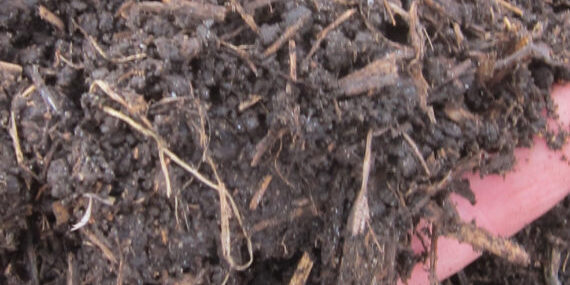When the uninitiated see a pile of compost they may see just a pile of regular dirt; but there’s more to compost than that. Quality compost is a dark color, usually richly colored, and it should have a sweet, earthy smell. If you were to make your own compost, at home, then you would find the compost takes approximately three-to-six months to mature. And you can add the compost at any time of year to achieve a healthier and happier garden.
Benefits of Compost
Compost builds quality soil structure. When compost is added to soil it enables the soil to retain water and air; it can protect the plants and soil against potential drought conditions; and, it can help the plants achieve a healthier ph. level.
Compost contains certain nutrients such as nitrogen, phosphorous, and potassium. Other nutrients, often overlooked by the average gardener, such as cobalt, copper, iodine, iron, and zinc—among others—are also present and benefit the plants. When compost is added to soil the nutrients and micronutrients create such a healthy growing environment that it may be unnecessary to add chemical fertilizers and other organic products that help plants grow.
Quality compost should be crumbly; a crumbly soil has a better structure. Quality soils with a crumbly structure easily hold water; quality compost can hold up to two-hundred percent of its dry weight in water.
Also, and possibly one of the most beneficial aspects of adding compost to soil, is that it benefits beneficial insects. Earthworms are vitally important to soil health. The earthworms pass organic matter from the soil through their bodies, and after the matter passes through an earthworm’s system it changes the ph of the soil. Earthworms also benefit the soil’s structure.
Luckily, you have Rocky Mountain Compost to supply you with all your compost needs. You can find several types of compost, ½ inch and ¼ inch, and ½ inch is best for use in gardens and similar garden beds, and the ¼ works best as a top dressing to lawns, football fields, and etc.







